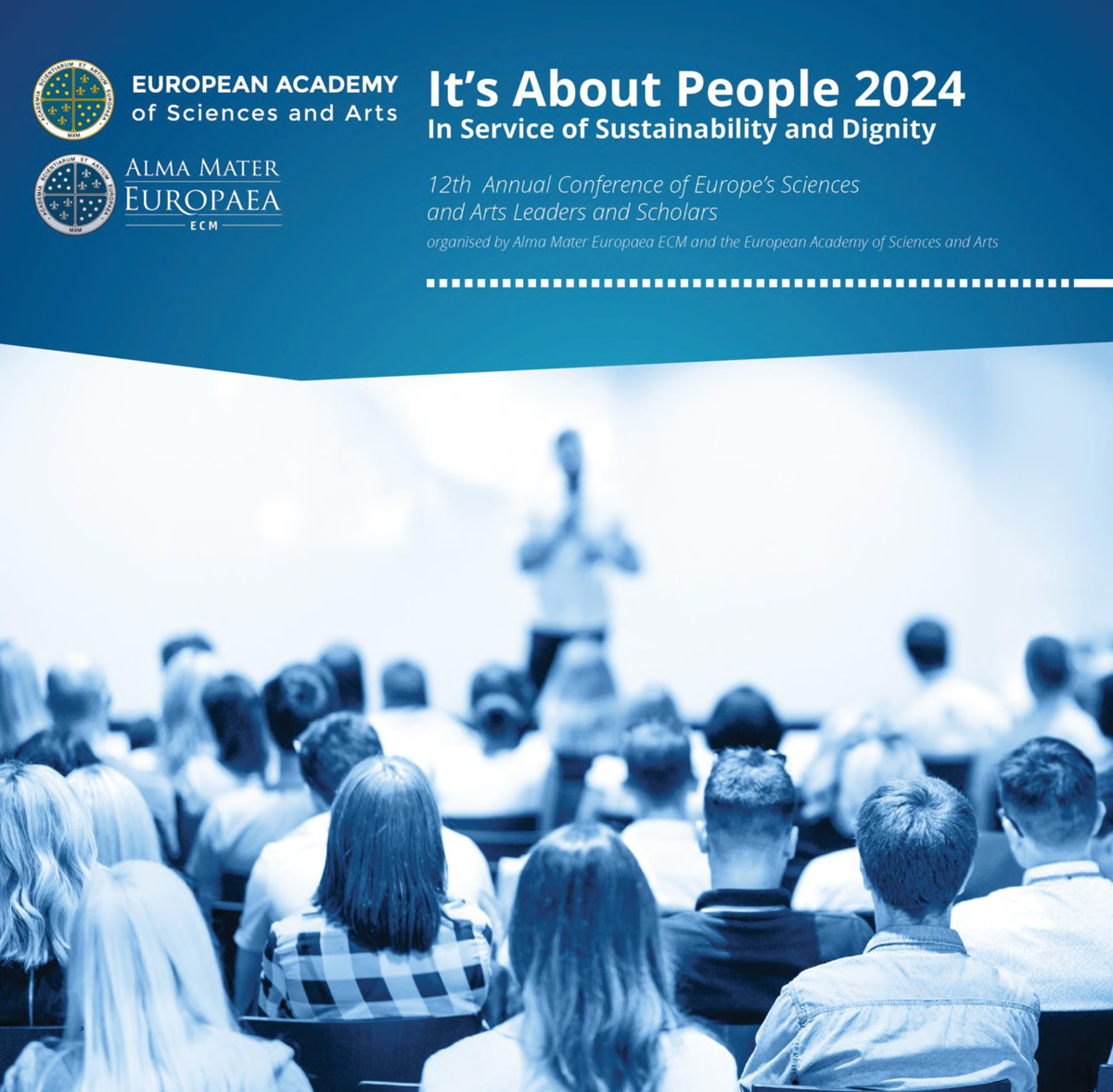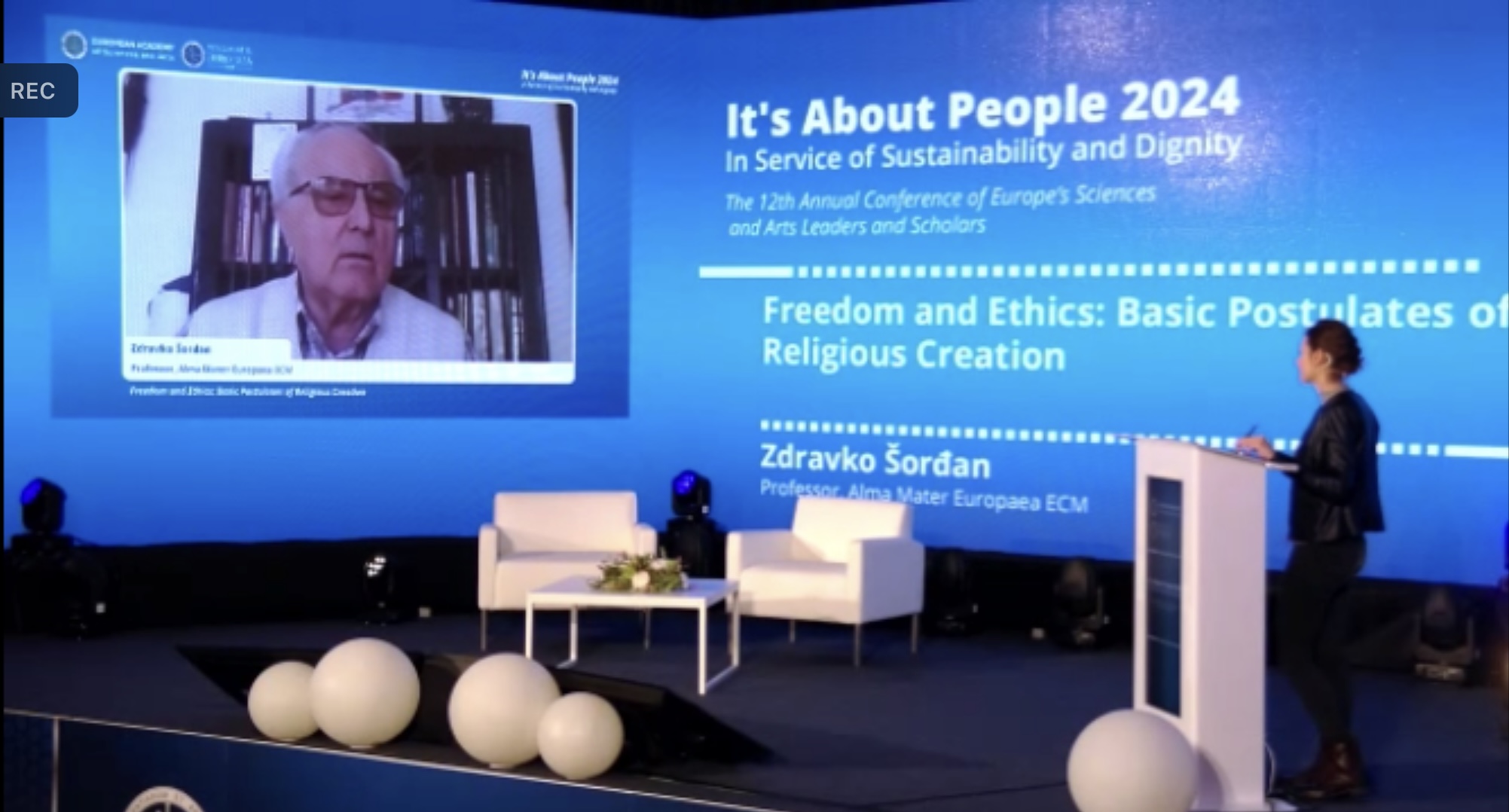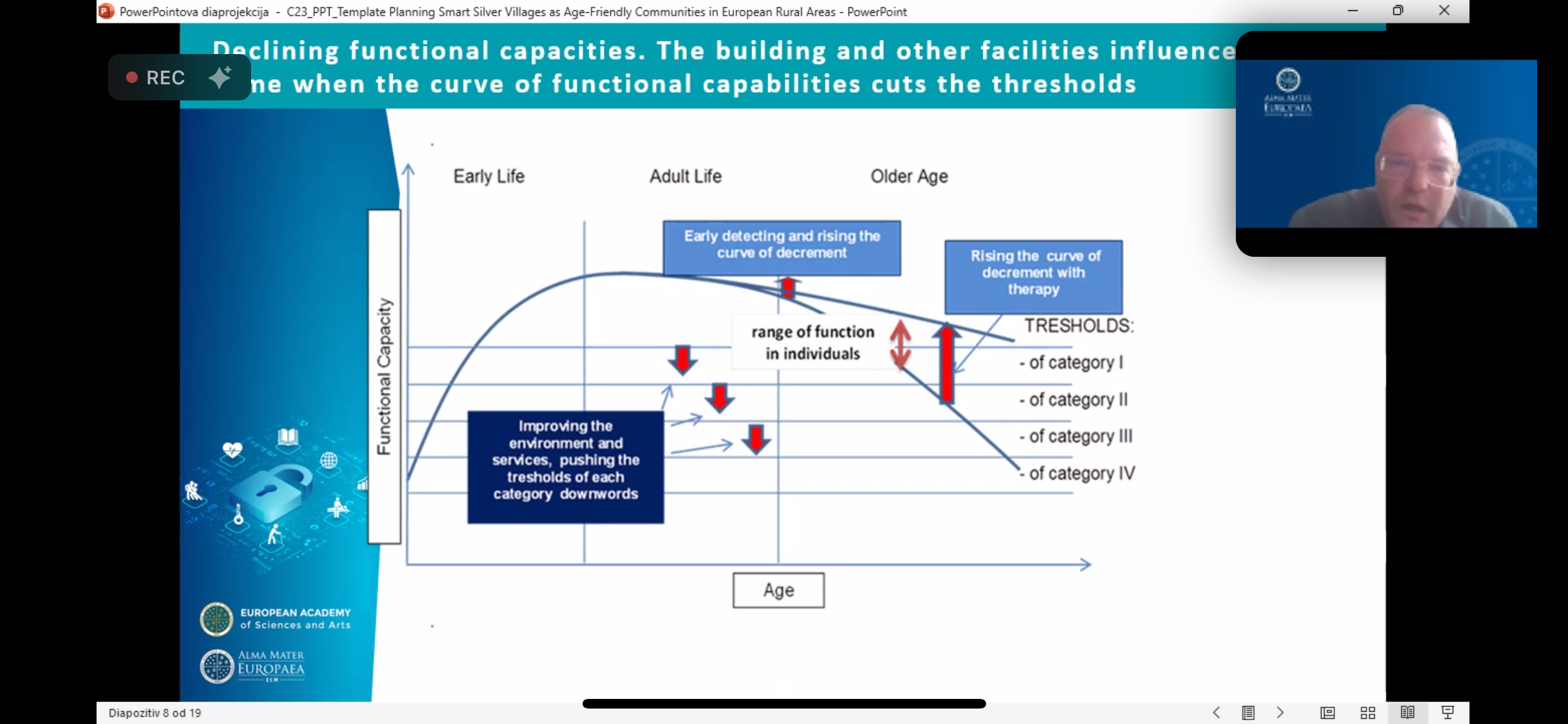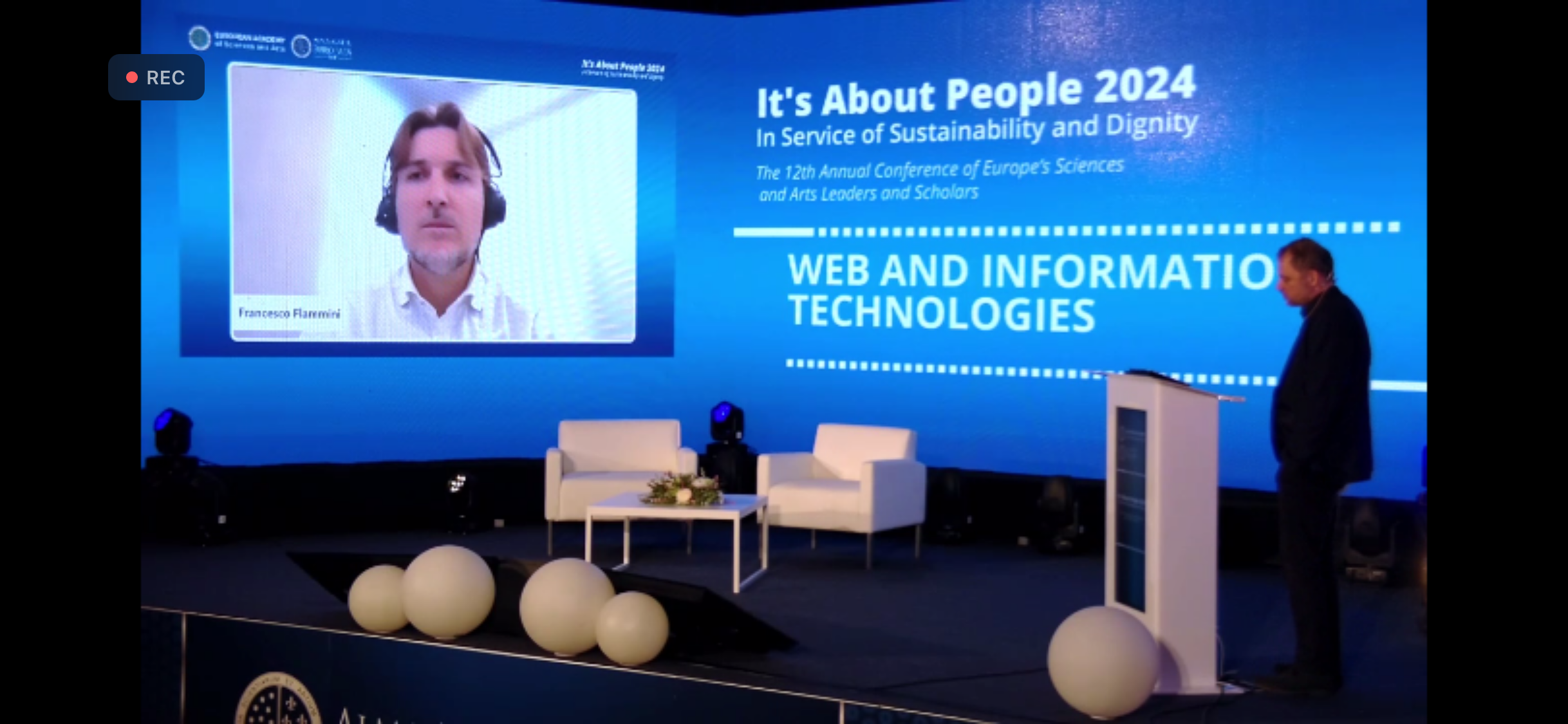12th Annual Conference of Alma Mater Europea and EASA: „It’s About People 2024 – In Service of Sustainability and Dignity.“

Slovenia, Maribor – 8-13 March 2024. PhDr. Lucia Škvareninová, M.S.S., DBA, director of Education at INTERCEDU, a.s., attended the 12th Annual Conference of Alma Mater Europea and EASA. Speakers presenting at the conference It’s About People 2024-In Service of Sustainability and Dignity have brought the latest topics in the fields of education and mental health, humanities, physiotherapy, social gerontology, medicine, political science, archival science, dance art, health sciences, law and revealed the most recent trends in the area of social infrastructure, sustainable development and strategic communication management, web and information technologies.

Welcome speech was delivered by Jurij Toplak, University Professor, Alma Mater Europaea ECM, Fordham University, President of the Organisational Committee of the It’s About People Conference and Felix Unger, University Professor, Honorary President, European Academy of Sciences and Arts. At the occasion of International Women’s Day, they highlighted the contribution of all women in arts and science. Our society needs strong and successful women.
Mr. Borut Pahor, Slovenian politician who served as President of Slovenia from 2012 to 2022 also delivered an interesting speech about the current situation in EU. He underlined that EU has to operate as united body and one community, because opinion fragmentation and polarization within EU may cause big problems in the future. This year, Slovenia will celebrate 20th anniversary of the EU and NATO accession. Today, majority of the nation is pro- European. At this moment, there are 55 regional conflicts in the world. When it comes to the EU’s support of Ukraine, we have to raise a common voice and all 32 NATO member states have to become responsible partners of the NATO family. He encouraged all EU citizens to come and vote in the forthcoming European Parliament elections to exercise our democratic right to decide on Europe’s future- which he considers, are the most important elections within last 20 years. He calls for EU integration of all 27 members to express our sovereign mentality and political will to be more integrated, and to have strong and powerful Europe.

Honorary speaker, Dubravka Šuica, European Commission Vice-President for Democracy and Demography, presented about demographic change and challenges in Europe. According to the forecast, in 2070 EU will represent 4% of the world’s population. EU population is ageing, there is an alarming problem with fertility rate. How can we put into balance growing global population and EU’s shrinking population? Today, life span is 10 years longer than 50 years ago. Kids, who are born today will live until they are 100 years old. Currently, we are facing the problem with human capital. Even pension systems have to be changed; since we live longer, we will have to work longer. EU latest reports have demonstrated the lack of labor force and skills shortages. For instance, 8 million European women is unable to go to work, because there is no infrastructure, such as kinder gardens. What can we do to increase the lack of human capital? Young people have to upgrade their working skills, because their diplomas and knowledge don’t match the current labor needs. At the same time, young population is facing housing problem. Older people who are already retired, but are willing to work, we have to let them work. The speaker emphasized, that we have to put intergenerational fairness into practice- bringing together old brains and young people with the lack of experience. Without legal migrants, our continent would be no more competitive. We have to see the people coming from the 3rd world countries as a ‘’brain gain’’ or so called ‘’brain circulation’’. EU is facing other challenges such as lack of services in the rural areas, which are no more attractive for young people. 27 EU member states have to find solution and to use various instruments to promote these missing services in the villages.
Prof. Dr. Klaus Mainzer, University Professor, President of the European Academy of Sciences and Arts, President of the Scientific Committee of the It’s About People Conference, the keynote speaker, presented the following topic- A New Renaissance For Europe: Challenges of Science, Arts, and Innovation in the Spirit of European Humanism. He emphasized that innovation is a driving force of economy. In the recent two years, the leading countries in innovation are Switzerland, Japan and Israel. Due to rising energy prices, our industries and European economy have slowed down. Today, we are facing real world problems, especially local conflicts and wars, or desertification of Africa, which are the main causes of immigration. If Europe wants to stay competitive, we need foreign experts and controlled immigration. His presentation was followed by the 1st plenary session called: Innovation and Education for Europe, moderated by Prof. Dr. Klaus Mainzer. The guest Michael Beckmann, University Professor, Dean, Technical University Dresden, was asked how to ensure sustainability. In his opinion, the key for the future is the circular economy. We need well educated people with holistic approach, who have social responsibility to minimize the negative impacts. It cannot be only about the regulations. In the area of energy industry, a lot of technology to recover the plastics are still in progress to convert CO2 to something else usable. We have to be optimistic about our young generation. ‘’Free technologies and open innovation’’ is the key for the future. The next speaker Ioannis Liritzis, Dean of Natural Sciences at the European Academy of Sciences and Arts, believes that education and innovation are interconnected and we need new didactic models. The speakers agreed that we have to keep the industrialization in EU and we must be more innovative, in order to preserve the EU identity.

The following days of the Conference continued in Maribor and were accessible online for the global audience. Speakers not only from the Balkans, presented the latest trends in different fields – such as a digital wallet which will become reality of our days in the upcoming years. In the area of cybersecurity there are enormous disparities between public and private sectors. The future vision is to support public-private partnership, because a lot of innovation in cybersecurity is happening in private area and new software is developed in private sectors. International cooperation in cybersecurity has to be promoted, while we have to exchange experience and should learn from each other. The most important is to attract experts from private area and bring them to the public sectors. In terms of AI, we are in the transition period and many new positions that currently don’t exist will be created. There is a growing need to find experts in the area of FAKE NEWS- interdisciplinary teams are the future.

